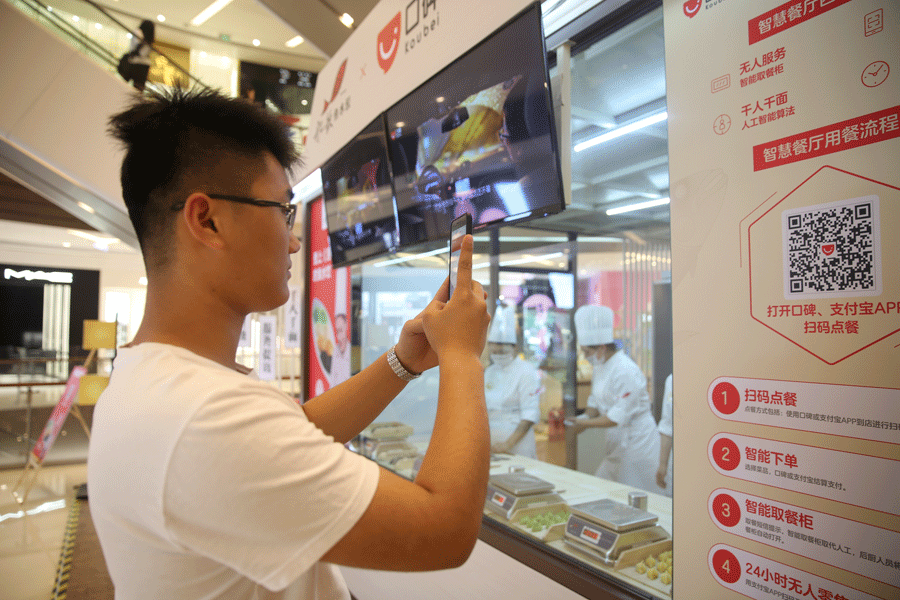Robot drinks stir man vs machine debate


Full steam ahead
Pathross had expected to receive such a response from people in coffee and cocktail circles. But he maintains his stance that Ratio is not out to undermine craftsmanship or be a threat to such businesses.
"I'd like to think of Ratio as a partner to coffee places and cocktail bars. What we want to do here is let people explore tastes, which would in turn help them learn more about these beverages," he said, before pointing out that market research had shown that Chinese consumers are generally unaccustomed to the flavors of popular cocktails.
"The negroni is one of the best-loved drinks in the world. But most Chinese consumers cannot accept the taste. It's too bitter for their liking," he added. "The cocktails we offer here at Ratio are more suited to their palate, and it also helps to ease them into trying more robust flavors in the future."
The first Ratio outlet will open at the Raffles City shopping center this month, and more store openings are planned. Pathross said technology allows him to expand more quickly than traditional establishments.
For instance, he can roll out a new outlet in a shorter time because the robot is already programmed with all the recipes, removing the need to train new bartenders.
"Can a robot be a master mixologist? Probably not. But our robot can definitely prepare a decent drink. And I'm also very confident that the robot can get the recipe right all the time," he said.
Pathross said he is also exploring ventures that involve using robots to cook. He refers to Spyce, the world's first restaurant to prepare complex meals using robots, as an example of how the future of the food industry will change in coming years.
"Acceptance of robots will eventually happen when you bring experienced professionals into the mix who can help create great recipes," said Pathross, referring to the appointment of Michelin-starred chef Daniel Boulud as Spyce's culinary director.
























